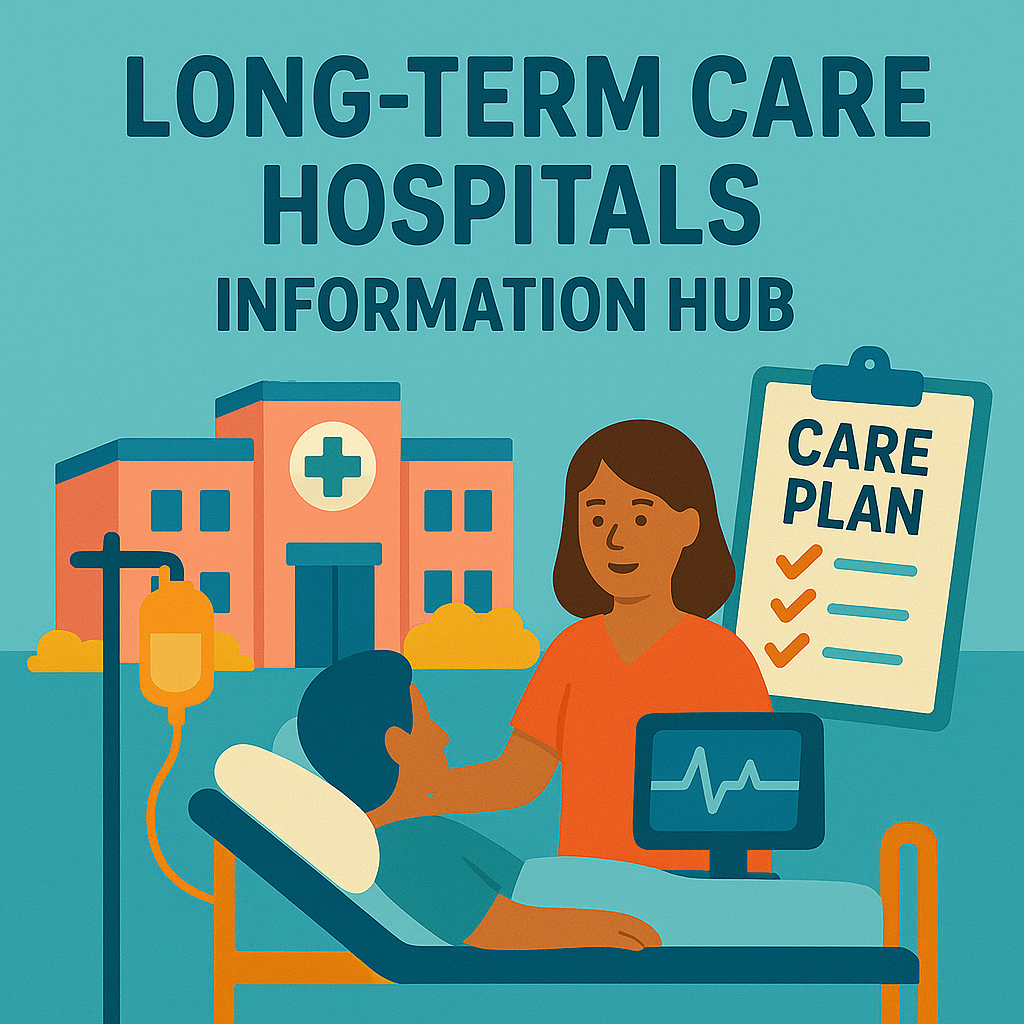Specialized Care for Extended Recovery
The Long Term Care Hospitals Hub
Long-term care hospitals (LTCHs) provide specialized treatment for patients with serious medical conditions requiring extended recovery. This hub offers resources to help families understand LTCH options, services, and how to navigate the journey of long-term care.

Key Things To Know
Long-term care hospitals (LTCHs) are specialized facilities designed to care for patients with complex medical needs who require extended hospital-level treatment, typically for more than 25 days.
- LTCHs are different from nursing homes or rehab centers: They are licensed acute care hospitals that treat patients who are too medically fragile for lower levels of care but no longer need intensive hospital intervention.
- Patients often transfer from ICU or step-down units: Common reasons include ventilator dependence, complex wound care, prolonged infections, or multiple chronic conditions that require close monitoring.
- The average stay is longer than a traditional hospital: Most patients remain for several weeks while stabilizing or receiving specialized treatments not available in other settings.
- LTCHs offer hospital-level staffing and equipment: These facilities are equipped to provide respiratory therapy, dialysis, imaging, and round-the-clock medical care.
- Medicare has specific rules about eligibility and coverage: Coverage typically applies if the patient was previously treated in an acute care hospital for at least three consecutive days and meets clinical criteria.
- Care planning is multidisciplinary: Teams often include physicians, nurses, physical and occupational therapists, social workers, case managers, and specialists.
- Not all hospitals labeled “long-term” are LTCHs: It’s important to ask whether the facility is Medicare-certified as a long-term care hospital or categorized differently under state or federal regulations.
- Family involvement is often encouraged: LTCHs may welcome participation in care planning meetings, goal setting, and discharge preparation.
- Transitions from LTCHs can vary widely: Some patients improve and move to rehab or home care, while others may transition to hospice or long-term residential care.
- Choosing the right LTCH involves more than location: Ask about specialty services, infection rates, staffing ratios, discharge outcomes, and how the facility coordinates with referring hospitals.
Resources
You shouldn't have to figure out long-term hospital care on your own. Fortunately, we have resources that can help.
Long-Term Hospital Care Related Content
Frequently Asked Questions About Long-Term Hospital Care
Disclaimer: The information provided on this website and by Buried in Work is for general informational purposes only and should not be considered legal advice. Please consult with a qualified attorney or subject matter expert for advice specific to your situation.




